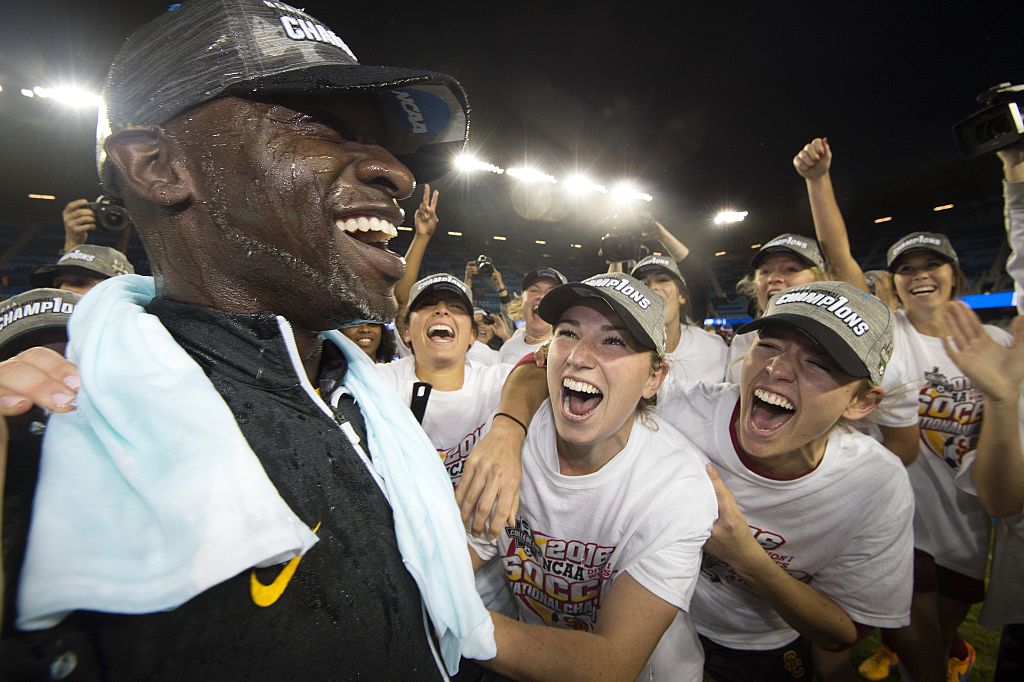Perhaps no program in the nation has underachieved when it’s mattered most over the past five seasons than USC women’s soccer. On the surface, that’s a little unfair, considering that the Trojans did win a national championship in 2016. And SC was the last team to defeat eventual national champion UCLA, besting the Bruins 2-0 in the regular season finale last year. Pac-12 champ Stanford also fell to USC, which should have been more than enough to prove USC’s credentials.
And yet, the Trojans haven’t been beyond the last 16 since 2019 and haven’t been to the College Cup since winning the 2016 title. Meanwhile, Stanford and UCLA both have lifted the title since their triumph, while SC continues to come up short when it matters.
This year’s side looks to change that, and beating Duke last weekend was a good start. Here’s a look at August for USC.
This Is the Trojans’ Proving Ground
USC watched UCLA go out to Duke and North Carolina on one trip last season. The Bruins swept that swing and went on to lose just twice all year: Stanford and USC. But because of that stretch, UCLA knew that when it came time to face two good teams in a row on a neutral field, it could handle that task because it had already done it.
USC hasn’t had that opportunity before. It doesn’t exist in the Pac-12 unless you’re coming to USC and UCLA back-to-back, which the Trojans obviously can’t do. When SC put its schedule together, it did so with an eye on November. Losing to Carolina now isn’t a big deal; what matters is how SC responds to the loss and grows from it.
SC’s Strikers Need to Be Challenged
Against Carolina, SC got out-shot 25 to 5. That’s a sign to the attackers that they won’t have it their own way in November, as that’s come back to bite the Trojans year after year. Three of SC’s exits have come on penalties, which is in part because the strikers didn’t do enough with their chances. Facing an opponent who limits your chances like North Carolina or Duke can help the attackers learn how to make something out of nothing.
Early Adversity Can Help
You see it all the time in other sports: a team that ran into adversity early learns from what it didn’t do so that it can put its lessons into practice. A great example came on the men’s side last year, when Pittsburgh and Creighton went from unseeded to the College Cup. In the process, Pitt sent No. 1 Kentucky packing and Creighton dismissed No. 2 Washington, because both knew what to do from previous games that went wrong.
USC’s had enough of underachieving in November. If the Trojans make a run this year, testing themselves now will be a big reason why.

